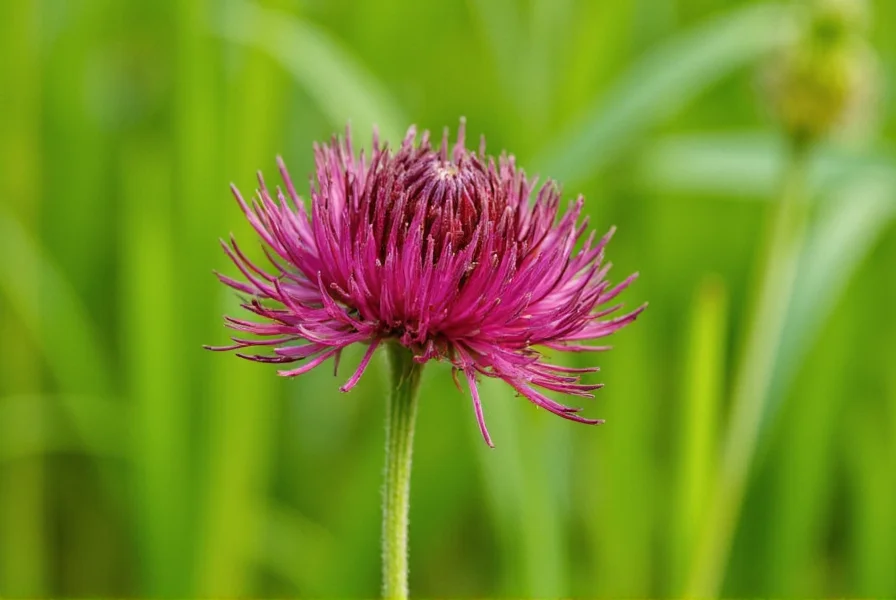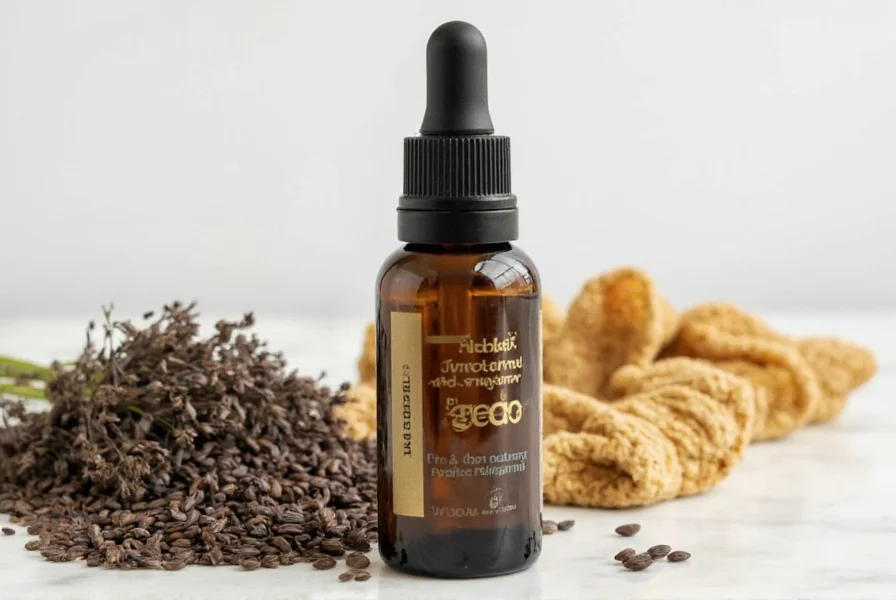Black cumin seed oil, also known as black seed oil or Nigella sativa oil, has been used for centuries in traditional medicine systems across the Middle East, Asia, and Africa. Modern scientific research now validates many of its traditional applications while revealing new potential health benefits. This comprehensive guide examines what black cumin seed oil is good for based on current scientific evidence, separating established facts from preliminary findings.
Understanding Black Cumin Seed Oil
Black cumin seed oil comes from the seeds of the Nigella sativa plant, different from regular cumin (Cuminum cyminum). The oil contains over 100 bioactive compounds, with thymoquinone being the most researched component responsible for many of its therapeutic properties. Cold-pressed extraction preserves these valuable compounds better than solvent-based methods.

Scientifically Supported Health Benefits
Multiple clinical studies and systematic reviews have investigated black cumin seed oil's effects on various health conditions. The strongest evidence supports these applications:
Anti-Inflammatory and Antioxidant Effects
Thymoquinone, the primary active compound in black cumin seed oil, demonstrates significant anti-inflammatory and antioxidant activity. Research published in the Journal of Ethnopharmacology shows it inhibits inflammatory pathways comparable to some pharmaceutical anti-inflammatory drugs, but with fewer side effects. These properties make black cumin seed oil benefits particularly relevant for chronic inflammatory conditions.
Immune System Modulation
Studies indicate black cumin seed oil can both stimulate and regulate immune function. A 2020 review in Phytotherapy Research found it enhances natural killer cell activity while reducing excessive inflammatory responses. This dual action explains why many people ask what black cumin seed oil is good for regarding seasonal immune support.
Skin Health Applications
Topical application of black cumin seed oil shows promise for several skin conditions. Clinical trials demonstrate its effectiveness for:
| Skin Condition | Study Results | Evidence Level |
|---|---|---|
| Acne | 53% reduction in lesions after 4 weeks | Moderate (multiple small studies) |
| Eczema | Significant improvement in symptoms and quality of life | Strong (RCTs) |
| Wound Healing | Accelerated healing and reduced scarring | Preliminary (animal studies) |
| Psoriasis | Reduced scaling and inflammation | Limited (small human trials) |
Other Potential Benefits Under Research
While more research is needed, preliminary studies suggest black cumin seed oil may offer additional health benefits:
Respiratory Health Support
Traditional use for respiratory conditions finds some support in modern research. A study in the European Respiratory Journal showed black cumin seed oil improved lung function in people with mild asthma. Many users report benefits for seasonal respiratory discomfort, though larger clinical trials are needed to confirm these effects.
Metabolic Health
Several studies indicate potential benefits for metabolic markers. Research published in Nutrition Journal found that daily supplementation with black cumin seed oil improved fasting blood sugar and insulin sensitivity in prediabetic individuals. These black cumin seed oil benefits for metabolic health warrant further investigation.
Cardiovascular Support
Early research suggests potential cardiovascular benefits, including modest reductions in blood pressure and improvements in lipid profiles. However, these findings come primarily from animal studies and small human trials, so more robust evidence is needed before making definitive claims about black cumin seed oil for heart health.
How to Use Black Cumin Seed Oil Effectively
Understanding how to properly use black cumin seed oil maximizes potential benefits while minimizing risks:
Internal Consumption
For internal use, most studies use doses between 1-3 grams daily. Start with smaller amounts (¼ to ½ teaspoon) to assess tolerance. Mix with honey, yogurt, or warm water to improve palatability. Never exceed recommended doses as higher amounts may cause gastrointestinal discomfort.
Topical Application
For skin applications, dilute with a carrier oil (like coconut or jojoba oil) at a 1:3 ratio. Perform a patch test before widespread use to check for sensitivity. Apply to clean skin twice daily for best results when addressing specific skin concerns.

Safety Considerations and Potential Side Effects
While generally safe for most people, black cumin seed oil has important safety considerations:
- May interact with blood pressure medications, diabetes drugs, and immunosuppressants
- Not recommended during pregnancy due to potential uterine stimulation
- Can cause allergic reactions in people sensitive to plants in the Ranunculaceae family
- May lower blood sugar excessively when combined with diabetes medications
- Long-term safety data beyond 3 months of continuous use is limited
Always consult your healthcare provider before using black cumin seed oil for specific health conditions, especially if you have underlying medical conditions or take prescription medications. This precaution ensures you understand what black cumin seed oil is good for in your particular situation without risking adverse effects.
Choosing Quality Black Cumin Seed Oil Products
Product quality significantly impacts effectiveness. When selecting black cumin seed oil, look for:
- Cold-pressed extraction method (preserves active compounds)
- Dark glass packaging (protects from light degradation)
- Thymoquinone content listed (higher quality products specify this)
- Organic certification (reduces pesticide exposure)
- Third-party testing for purity and potency
Avoid products with added fillers, artificial ingredients, or those stored in clear plastic containers. Proper storage in a cool, dark place maintains potency. Understanding how to select quality products ensures you receive the maximum black cumin seed oil health benefits.
Conclusion: Evidence-Based Perspective
Black cumin seed oil offers several scientifically supported health benefits, particularly for inflammation, immune function, and skin health. While traditional medicine has used it for centuries, modern research continues to validate and expand our understanding of what black cumin seed oil is good for. However, it's not a miracle cure, and expectations should align with current evidence. For specific health concerns, consult healthcare professionals who understand both conventional medicine and evidence-based natural approaches. When used appropriately as part of a comprehensive health strategy, black cumin seed oil can be a valuable addition to your wellness routine.
Frequently Asked Questions
What is the most scientifically proven benefit of black cumin seed oil?
The most scientifically supported benefit of black cumin seed oil is its anti-inflammatory and antioxidant effects, primarily due to thymoquinone. Multiple clinical studies confirm its ability to reduce inflammatory markers and oxidative stress, making it potentially beneficial for conditions involving chronic inflammation.
How long does it take to see results from black cumin seed oil?
Results vary depending on the application. For skin conditions, improvements may appear within 2-4 weeks of consistent topical use. Systemic benefits like reduced inflammation may take 4-8 weeks of daily internal consumption. Some studies measuring immune markers show changes within 2 weeks, while metabolic benefits typically require 8-12 weeks of consistent use.
Can black cumin seed oil help with hair growth?
Preliminary research suggests black cumin seed oil may support hair health when applied topically. A small study in the Journal of Dermatology found improved hair density and reduced hair loss in participants using a black seed oil formulation. The oil's anti-inflammatory properties and potential to improve scalp circulation may contribute to these effects, though more robust clinical evidence is needed.
Is black cumin seed oil safe for daily use?
For most adults, black cumin seed oil is safe for daily use at recommended doses (typically 1-3 grams). However, long-term safety data beyond 3 months of continuous use is limited. Some people experience mild digestive upset initially. Those with autoimmune conditions, pregnant women, and individuals taking certain medications should consult a healthcare provider before regular use.
How does black cumin seed oil differ from regular cumin?
Black cumin (Nigella sativa) and regular cumin (Cuminum cyminum) come from different plant families and have distinct properties. Black cumin seeds are smaller, black, and crescent-shaped, while regular cumin seeds are larger, lighter brown, and straighter. Black cumin seed oil contains thymoquinone as its primary active compound, whereas regular cumin contains cuminaldehyde. Their health benefits and culinary uses differ significantly.











 浙公网安备
33010002000092号
浙公网安备
33010002000092号 浙B2-20120091-4
浙B2-20120091-4